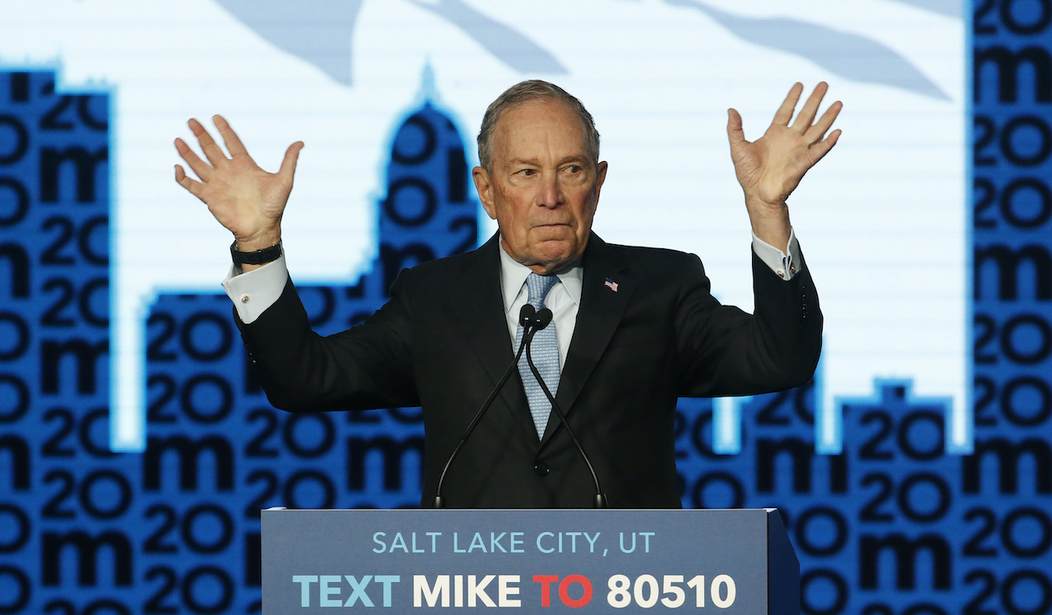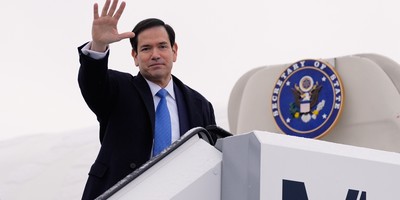With Michael Bloomberg dropping out of the Democratic presidential race, Bloomberg News announces that it will again resume “normal coverage of the election.” But for Bloomberg News “normal” coverage means constant attacks on President Donald Trump, particularly his economic policies, to influence the election.
Bloomberg spent over $550 million on his campaign, but that’s not the full story. It isn’t just Bloomberg’s massive ad campaign that is trying to make Americans feel that the country is heading in the wrong direction. His 2,700 reporters are working hard to attack Trump. A couple of weekends ago, right before the Coronavirus gyrations in the stock market, Bloomberg News’ headlines included: “All the Ways Stock Market Bulls Have Gone Off the Rails. Again,” “In Hot U.S. Jobs Market, Half of College Grads Are Missing Out,” and “China Trade War Walloped More Than Half of U.S. States in 2019.” There was not a single positive headline on the economy.
These stories don’t just run on Bloomberg’s news website, but similar stories are also on Bloomberg TV and Bloomberg Businessweek. Sometimes they are carried by other outlets such as Yahoo! Finance.
The articles interpret information in the most negative ways possible. Salaries for everyone are going up, and the poorest people have seen the largest percentage increase in wages. So, Bloomberg’s reporters are now finding a way to be upset about shrinking inequality. “But in recent years, while high-school graduates have seen a sharp pickup in earnings, the lower-earning half of college graduates haven’t -- and the gap between them is now the smallest in 15 years.” Instead of proclaiming that college grads are “missing out,” the headline could celebrate that high school grads aren’t being left behind.
It may also sound bad that “More than four in 10 recent graduates are working in jobs that don’t usually require a college degree,” but this is still more than a several percentage point improvement over what it was in 2016 and it might tell us more about what majors people study in college.
Recommended
The stock market soared about 60 percent between Election Day 2016 and when these stories ran. But the Bloomberg staff attributes it to “things beyond the realm of rationality.” Not everyone agrees. In 2019, only 80 CEOs of the S&P 500 reduced personal holdings in the businesses they led, and there is no evidence that trend is changing in 2020. The people with the most knowledge of their companies aren’t reducing their personal stakes.
There is no way to put a dollar figure on the value of these stories to Bloomberg’s and Democrat’s campaigns. And with Bloomberg’s news operation focusing on financial issues, you can’t expect them to ignore how the economy is doing. Still, there is no way that the government can oversee whether there is political bias in news stories.
There were also a number of negative opinion pieces on Trump, where the criticism is pretty over the top. That same weekend’s opinion headlines read: “An Unrestrained Trump May End Up Trapping Himself,” “Trump Is Already Making Stuff Up About Voter Fraud,” and “Trump’s Tariffs Haven’t Rescued American Steel.”
Bloomberg’s news operations have tried to circumvent campaign finance laws by promising not to investigate either Bloomberg or his Democratic rivals for the nomination. But over the weekend, Bloomberg’s operation had a tough news story entitled, “Klobuchar’s Rise Brings New Scrutiny to Record as Prosecutor.”
There was also a news piece on “Bloomberg Faces Attacks from Democrats as He Rises in Polls,” but arguably, it gave short shrift to the most damaging attacks. In a 2015 audio recording, Bloomberg claimed: “95 percent of your murders — murderers and murder victims fit one M.O. You can just take the description, Xerox it, and pass it out to all the cops. They are male, minorities, 16 to 25. That’s true in New York. That’s true in virtually every city… And the way you get the guns out of the kids’ hands is to throw them up against the wall and frisk them.”
But the story had only this to say: “Bloomberg said the best way to reduce gun violence among young, minority men was to ‘throw them up against a wall and frisk them.’” There was a deeper problem with Bloomberg’s private, unguarded comments, that he made the absurd claim that “in virtually every city” 95 percent of murderers are young, minority men. It is one thing to say that minorities commit crimes at relatively high rates compared to whites. Still, it is something quite different to claim that minorities commit virtually all murders.
Bloomberg is paying social media “influencers” to make him look cool, and his money is influencing social media in other ways. Andre Fields of Fair Fight Action (a left-leaning, voting rights organization) tweeted on February 10 that Bloomberg is a “true terrorist” for his comments on minority males, but then immediately deleted the tweet. It is only too likely that Bloomberg’s $5 million in funding for the group put pressure on Fields to reconsider the Tweet.
Democratic presidential candidates such as Joe Biden and Bernie Sanders want to bar corporate money from federal politics and set up public financing of campaigns to varying degrees. But there is no way of accounting for the far-reaching influence of Michael Bloomberg and his $60 billion fortune. Regulations can stop typical companies and their employees from buying ads in support of candidates, but it is tough to envision a law that prohibiting Bloomberg’s financial news service from providing news on the economy.
Nor does it address the rest of the mainstream media whose news coverage, both in what they cover and how they cover it, is for all practical senses a donation to Democrat candidates. Why doesn’t Bloomberg News’ coverage of the campaign and the economy count as campaign expenditures? The money he spent on the campaign is no different than the money he is spending on news coverage.
John R. Lott Jr. is the president of the Crime Prevention Research Center and the author, most recently, of “The War on Guns.”

























Join the conversation as a VIP Member